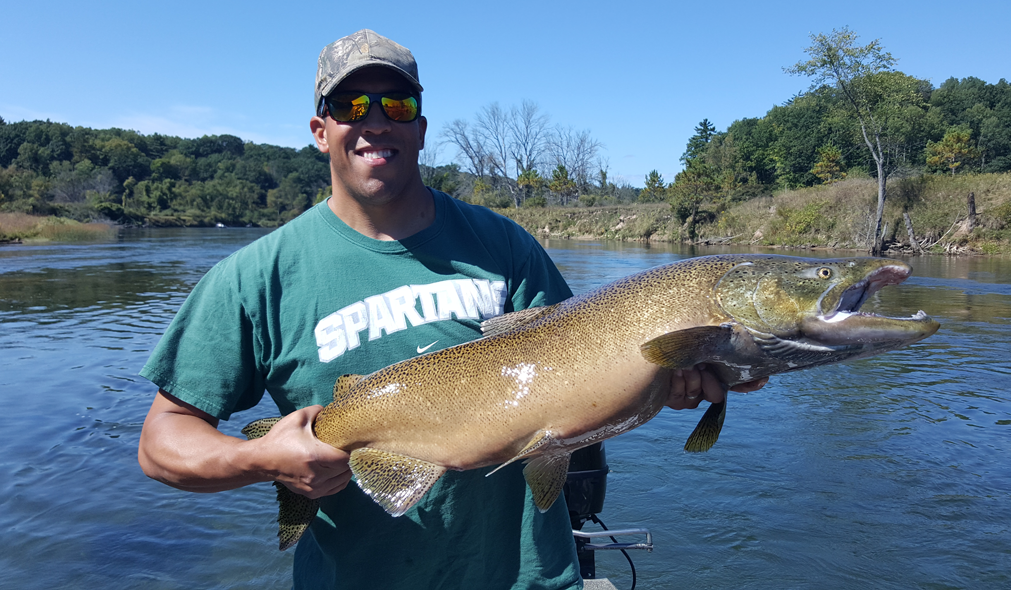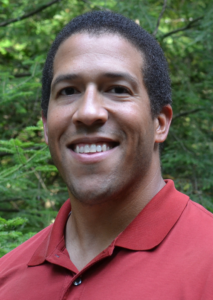
In Episode 13 of Illinois-Indiana Sea Grant’s podcast series Teach Me About the Great Lakes, titled “It Smells Like Science,” host Stuart Carlton interviews Brian Roth, an ecologist in the Department of Fisheries and Wildlife at Michigan State University. Roth studies food web structure and function to try to understand how fish management and harvest actions affects the food web and vice versa.

Brian Roth
Carlton, IISG assistant director, and Roth talk about predatory fish in the Great Lakes, the history of the Great Lakes salmon fishery, how native and invasive fishes interact within the ecosystem, and how the fish populations are changing as lake conditions change, as well. They also briefly discuss invasive crayfish and the nitty gritty detail of conducting a fish diet study.
Teach Me About the Great Lakes is a monthly podcast in which Carlton—a social scientist who grew up in the South near the Gulf of Mexico—asks people to explain the biology, ecology and natural history of the Great Lakes. A new episode is usually released on the first Monday of each month. The latest episode is embedded below.
Love this episode and want to hear more in the future? Subscribe on Apple Podcasts or Spotify, or use the RSS feed in your favorite podcast player.
If you have questions you want answered about the Great Lakes, reach out to Stuart Carlton at jsc@purdue.edu.
Illinois-Indiana Sea Grant is a part of University of Illinois Extension and Purdue Extension.

